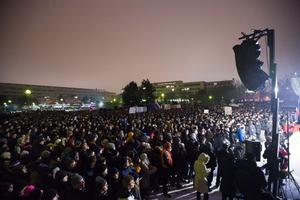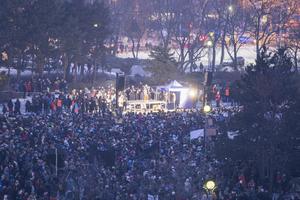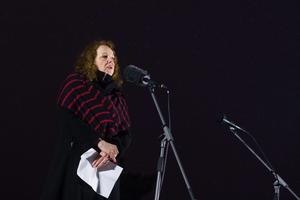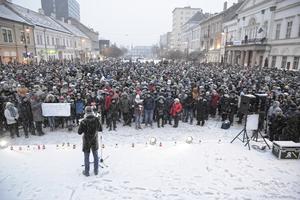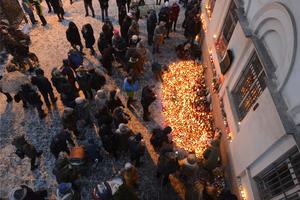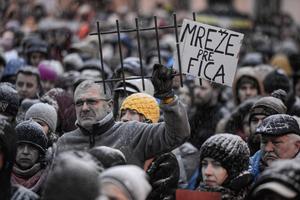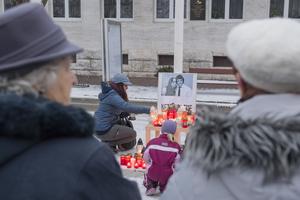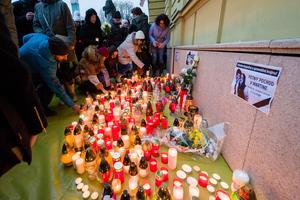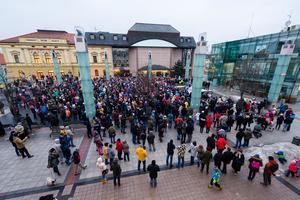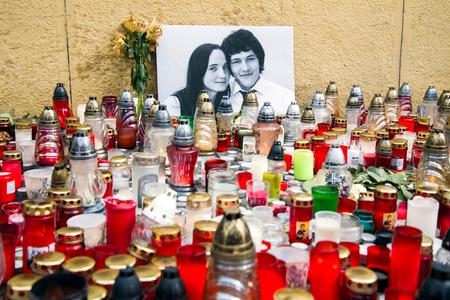Up to 25,000 people marched through the streets of Bratislava on March 2 to pay tribute to investigative journalist Ján Kuciak and his fiancée Martina Kušnírová, who were murdered in their house in Veľká Mača, close to Galanta (Trnava Region).
The civilian march started at 17:00 at Hviezdoslavovo Square, and the crowd then slowly moved to the Freedom Square, where speeches were also held.
“Bratislava is the capital of press freedom today,” said Christophe Deloire, secretary-general of the Reporters without Borders (RSF) organisation.
Some voices cannot be silenced
“This day should not be about politics, but rather the memory,” said President Andrej Kiska, calling on people to pay tribute to Kuciak and Kušnírová with one minute of silence.
Beata Balogová, editor-in-chief of the Sme daily, said during her speech the fact that “a journalist was killed is sad news about the current state of the republic”. She hopes it will resonate everywhere decisions are made.
“We have come to a crossroad where we need to decide what country we want to have,” Balogová said.
The murder of Kuciak and Kušnírová will belong to the events, which people will remember even in the future, said Lukáš Fila, head of the Denník N daily publishing house. He himself was shocked when he first learned about it on February 26.
“It’s important now what will happen with society next,” Fila said, adding that the shock this country has experienced cannot be erased, but it might make Slovakia a better country.
Árpád Soltész, journalist of the Noviny.sk website, said that Kuciak’s murder showed that democracy in Slovakia is threatened. The main message of his work was to make the country better and we all, not just journalists, should finish it.
"We are all Slovak journalists today," echoed Deloire.
Martin M. Šimečka said in his speech that the journalists need their readers and audience not to be indifferent. The high number of march's participants gave him hope that the era of indifference has ended.
The organisers also read the letter from Pavla Holcová of the Czech Centre for Investigative Journalism, who often collaborated with Kuciak. She could not make it to the march as she is being protected by the police.
“I understood that neither the story nor the idea could be killed, even when trying hard,” the letter she sent reads.
People came for various reasons
19-year-old Kristína says she came to the march because she disagrees with the approach some politicians took towards the current situation.
“It’s the abuse of democracy,” she said.
Her friend Lucia (19) adds she came to express her sympathy for the families of the deceased.
“The murderers did not only kill the person, but also the freedom of press and thinking,” she said. “They’ve crossed the line and they cannot do this to us.”
The safety of the participants was supervised by the police officers. No serious incident occurred.
Apart from the capital, the marches and candle ceremonies were in other 50 cities in Slovakia and the world. (See the list here.)


